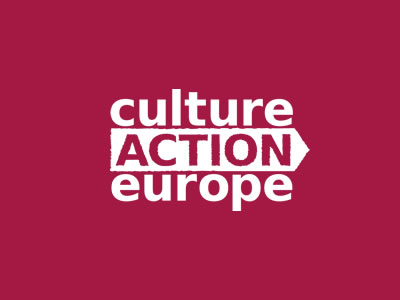 Dating back to 1992, the European Forum for Arts and Heritage has been working enthusiastically on addressing the cultural policy issues of Europe till date. In this long journey, the organization has been renamed as the Culture Action Europe in 2008. The decision makers of the European Union are in close contact with the team of Culture Action Europe and thereby, EU has recognized it as one of the most unique resources for expertise in cultural policy. Be it for any informed opinion or any debate about the art and culture policy for Europe, the CAE is the foremost port of contact on the EU Institutions’ end. As the umbrella organization and representative for preservation of cultural sector, CAE is the biggest of its kind in pan Europe. Know about the 10 European Initiatives for preservation of heritage. Let’s have a look at the history of this organization since its starting days –
Dating back to 1992, the European Forum for Arts and Heritage has been working enthusiastically on addressing the cultural policy issues of Europe till date. In this long journey, the organization has been renamed as the Culture Action Europe in 2008. The decision makers of the European Union are in close contact with the team of Culture Action Europe and thereby, EU has recognized it as one of the most unique resources for expertise in cultural policy. Be it for any informed opinion or any debate about the art and culture policy for Europe, the CAE is the foremost port of contact on the EU Institutions’ end. As the umbrella organization and representative for preservation of cultural sector, CAE is the biggest of its kind in pan Europe. Know about the 10 European Initiatives for preservation of heritage. Let’s have a look at the history of this organization since its starting days –
1992 To 1998
In the first General Assembly in Copenhagen, the Memorandum regarding European cultural organizations was passed followed by the second General Assembly in Lisbon where an inventory was published regarding contribution of EU institutions. A paper based on the new models of the European support was released. Kaleidoscope 2000’s response along with the EU Treaty’s modifications also took place.
1999 To 2003
7th, 9th and 10th General Assemblies were organized with International Conferences regarding suitable European Cultural policy from 1999 onwards, European Institutional Reform and culture in Brussels and restoring culture to European Agenda respectively. ECF, EFAH and EPC organized policy dialogues regarding cultural issues to be developed in near future of European Union Constitutional Treaty and published a report on cultural cooperation. A position paper for Austria, protest for all-out boycott and report on the Institutional reform and cultural NGOs, evaluating and forming future perspectives were also notable events.
2004 To 2011
Within EU’s Liaison Group, the EFAH interacts with civil society networks and organizations under EFSC and later joins Civil Society Contact to issue Parliamentary platform and toolkit. To promote EU culture, 70 cents were issued for cultural campaign and thus EFAH is renamed as Culture Action Europe with new website, visual identity and strategies. A joint ECF/EFAH initiative created Civil Society Platform for the intercultural dialogue. CAE follows up Agenda for Culture and becomes one of the 3 structured dialogue platforms. With the Cultural Foundation, an arts advocacy campaign was started.
2012 To 2014
The 20th General Assembly for Act for Culture, Act for Europe took place in Brussels with an International Conference and the 21st General Assembly took place in Rome. The cross-sector independent working group Arts, Rights, Justice was set up under ‘Access to Culture’ framework. In order to increase fund for amending Creative Europe, legal initiatives were taken. 22nd General Assembly with International Conference was organized at Newcastle Gateshead while CAE opens up its membership for individual and releases reflection papers on European culture.
2015 To Present
For discussing people, cities and culture, Kathreptis was organized in Athens on 20th November and on 30th November, 2015. UK’s EU referendum was addressed in the first meeting followed by the second meeting on 22nd January next year. CAE organized the 1st Members’ Forum in Brussels and was selected for participation in the Voices of Culture. A toolkit to train the heritage trainers was published by ARJ while CAE becomes the member of the Civil Society Europe’s Steering.
Initiatives Of Culture Action Europe
 Since its foundation according to the Belgian Law, the then European Forum For The Arts And Heritage has organized more than fifteen international meetings and seminars throughout the European continent while actively contributing to various debates regarding cultural policies within Europe with the help of multi-faceted studies, position papers, publications as well as continuous conversation with policymakers. The initiatives are as follows –
Since its foundation according to the Belgian Law, the then European Forum For The Arts And Heritage has organized more than fifteen international meetings and seminars throughout the European continent while actively contributing to various debates regarding cultural policies within Europe with the help of multi-faceted studies, position papers, publications as well as continuous conversation with policymakers. The initiatives are as follows –
- Maintaining continuous conversation between policymakers and European cultural sector
- Identifying requirements of artistic communities of Europe and convey those to the policymakers
- Stimulating thoughts on various European cultural policies and developing the shared awareness
- Building bridges between policymakers and cultural sector of Europe at various socio-political levels, thereby helping in decision making on pan Europe basis.
- Working as network with legally (National laws) approved organizations to launch new initiatives from joint experience and energy
Any cultural group or institution is free to subscribe to CAE’s objectives as it is open to all. Coordination Office in Brussels handles the general logistics of CAE. From artists to heritage professionals and administrators of any arts organizations are included among the 75 organizations and networks working as CAE members.
